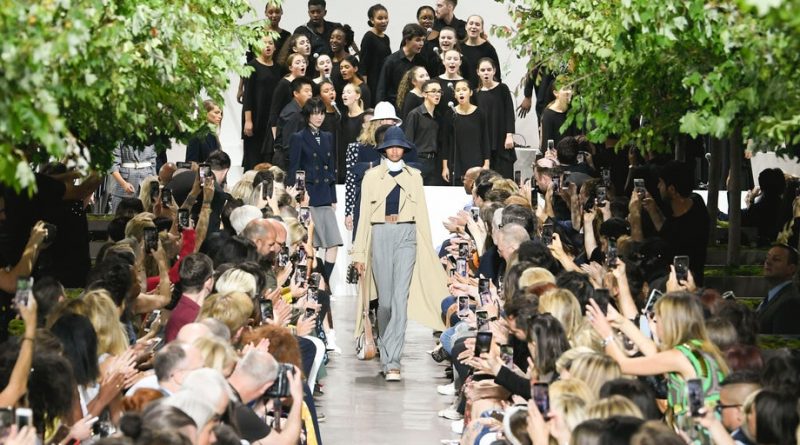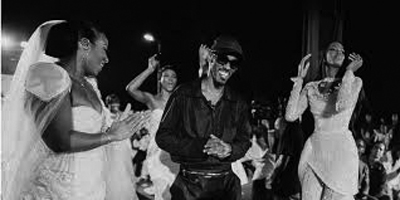Trouble Brewing for America’s Luxury Sector | BoF Professional, This Week in Fashion
It’s been a tough week for some of America’s biggest luxury brands. On Tuesday, Ralph Lauren reported worse-than-expected results for its most recent quarter. Comparable-store sales plunged by 57 percent and the company said it would rethink its “long-term operating structure to align with our evolving strategic priorities.” This includes a reassessment of its brand portfolio, distribution channels, corporate real estate and team.
The following day, Capri Holdings beat analyst expectations but still reported a 66.5 percent fall in revenue last quarter, despite a recovery in Chinese demand for its smaller Europe-based Versace and Jimmy Choo brands, with its cornerstone American accessible luxury label, Michael Kors, down 68.7 percent on last year.
The coronavirus crisis has forced store closures, grounded international tourist travel and crushed consumer demand, resulting in the worst-ever quarter in the history of the modern luxury industry. At sector-leader LVMH, sales fell 38 percent, while Kering suffered a 44 percent decline. But the bigger drops seen at Ralph Lauren and Capri reflect deeper challenges.
Some of the damage is self-inflicted. While Europe’s luxury giants play a long game rooted in selective distribution and price integrity, American fashion labels like Ralph Lauren and Michael Kors have suffered from shorter-term thinking, resulting in an approach based on wide distribution and discounting, which can deliver exhilarating sales volumes but inevitably comes at the cost of brand erosion.
What’s more, while the European conglomerates artfully splice careful brand management with creative risk-taking, Ralph Lauren and Michael Kors have stagnated, with their founders still firmly at the creative helm at a time when consumers are increasingly thirsting for newness.
But there’s more to the diverging performance. The American brands are heavily exposed to the US market, where fashion sales were suffering from declining mall traffic and faltering department stores even before the pandemic. The shrinking of America’s middle class has also created a more polarised market in the country, favouring the value and true luxury segments, while hurting accessible luxury players like Ralph Lauren and Michael Kors, which offer lower entry-level price points than are typically found at European brands.
Last week, LVMH Chief Financial Officer Jean-Jacques Guiony said US sales at Louis Vuitton this June were roughly in line with the same month last year and that Dior had even returned to growth in the market. Kering and Prada also reported recent improvements in the US. And yet, Ralph Lauren saw its biggest drop in North America, with sales plunging 77 percent in the region in the company’s most recent quarter.
Socio-political upheaval is also causing havoc in the market. The US has been convulsed with protests after the killing of George Floyd at the hands of police. But most of all, America has mounted a weak and fractured response to Covid-19, resulting in one of the worst outbreaks in the world. The US government’s gross mishandling of the crisis, led by an inept President Trump, has done serious damage to America, its fashion sector included.
This week, as new coronavirus cases surged and political reporter Jonathan Swan again made Trump’s incompetence plain for all to see in a widely watched interview for Axios on HBO, some stores that had only just reopened were already being forced to close again.
Many American fashion executives are bracing for a worst-case scenario marked by continued spread of the contagion and repeated lockdowns. And with a presidential election on November 3rd, the politicisation of the pandemic will only make things worse in the months to come.
THE NEWS IN BRIEF
FASHION, BUSINESS AND THE ECONOMY
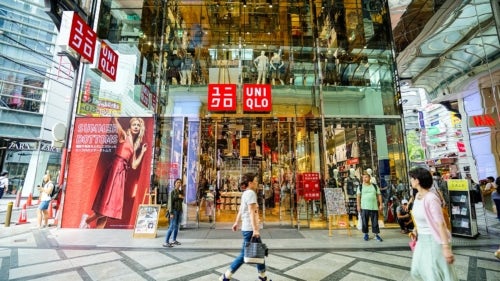
Uniqlo store in Osaka, Japan | Source: Shutterstock
Uniqlo’s July sales are up 4 percent thanks to strong demand for loungewear. Analysts predict the Japanese retailer’s focus on practical, everyday clothes could help it weather the coronavirus downturn better than its global peers. Uniqlo’s strong July performance follows a 26 percent sales jump in June after a three-month long slump.
Adidas expects a third-quarter rebound. Second-quarter sales came in at €3.58 billion ($4.25 billion), above analyst estimates of €3.24 billion. During the peak lockdown period, Adidas was forced to close 70 percent of its stores globally, but strong e-commerce sales boosted its performance. Adidas anticipates an operating profit of between €600 million and €700 million in the third quarter.
Under Armour beats quarterly estimates. The sportswear company’s net revenue fell about 41 percent to $707.6 million in the second quarter, but beat forecasts of $558.5 million. Under Armour reported a bigger loss of $182.9 million compared to a year earlier but said e-commerce sales were up across all global markets. Despite extensive store closures, sportswear companies have benefited from the surge in online demand for at-home workout equipment.
Hugo Boss expects demand for suits to return despite quarterly sales slump. The German luxury house saw its sales drop 59 percent and reported revenue of $323.5 million in the second quarter, missing analyst expectations. Although quarterly sales in China rose by 4 percent with double-digit growth in June, North American sales fell by 82 percent. Hugo Boss declined to provide a full-year forecast but expects a recovery in the second half of 2020.
Lord & Taylor files for bankruptcy. Fashion start-up Le Tote Inc.,which also filed for chapter 11 protection, had previously bought the rights to Lord & Taylor’s stores, brand and e-commerce site from Hudson’s Bay Co. for $71 million last year. Lord & Taylor said it has about $137.9 million of debt obligations and plans to file a reorganisation plan with the court. Executives said they plan to target younger women with beauty subscriptions and rental drop-offs but added that the number of Lord & Taylor stores will likely be reduced.
Men’s Wearhouse owner files for bankruptcy. Tailored Brands announced it has entered into a restructuring agreement with more than 75 percent of its senior lenders, which could reduce the company’s debt by at least $630 million. The company, which has priced its assets and liabilities between $1 billion to $10 billion, said it has received commitments for $500 million in debtor-in-possession financing from its existing lenders.
J.C. Penney lenders seek higher bids from potential buyers. If bids don’t improve, the lenders could acquire the company through a credit bid. Earlier proposals from possible buyers added up to about $1.8 billion, but the lenders are hoping to receive offers closer to the approximately $2.2 billion of J.C. Penney’s debt they hold. Mall owners Simon Property Group Inc. and Brookfield Property Partners LP’s bid is so far considered the most favourable as it will likely preserve the most jobs.
Matchesfashion doubles down on emerging labels. The retailer, facing growing pains of its own, is launching a new “Innovators Programme” to bolster the fledgling labels that help set it apart from competitors in a crowded luxury e-commerce market. As part of the scheme, Matchesfashion has selected 12 designers — including Thebe Magugu, Priya Ahluwalia and Grace Wales Bonner — who will receive mentorship, favourable payment terms, and £1.8 million worth of marketing support including photoshoots, editorials and media outreach.
Inditex pledges to maintain workers’ rights throughout its supply chain. In a joint agreement with global workers’ union IndustriALL, the Zara owner has committed to ensuring health and safety standards are met and workers’ rights to unionise are respected. Inditex has also agreed to stable payment terms in order to aid suppliers in providing steady payments for workers.
THE BUSINESS OF BEAUTY
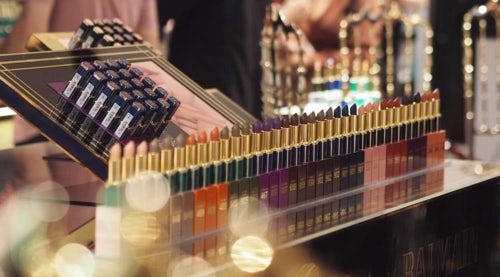
L’Oréal X Balmain lipsticks | Source: L’Oréal
L’Oréal’s US employees say their jobs are at risk if they don’t return to offices now. The cosmetics giant is reportedly requesting access to worker’s medical histories and adding them to a “non-compliant” list if they refuse to return to their workspaces, which in New York reopened August 3. The news comes as L’Oréal reports a €5.85 billion second-quarter revenue drop, worse than analysts had estimated.
Fenty Skin products are being resold at huge markups. Rihanna’s highly anticipated skincare range has already been cropping up on resale sites like eBay despite launching on July 31. Listings of cleansers, toners and moisturisers, which range between $25 to $35, have seen resale prices as high as $500.
PEOPLE
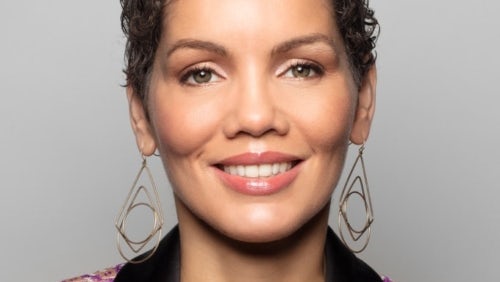
Renée E Tirado | Source: Courtesy
Gucci global head of diversity Renée Tirado departs. Tirado is stepping down to launch her own consulting firm but will continue to advise the Italian megabrand. Her former responsibilities will be shared between Chief People Officer Luca Bozzo and model and activist Bethann Hardison, who is a member of the Gucci Changemaker council and has been appointed to its global equity board and global corporate executive committee.
Agnes Chu joins Condé Nast Entertainment as new president. Chu, who most recently served as the senior vice president of content for Disney+, will oversee the expansion of video content across all digital, social and OTT (over-the-top) platforms, in addition to feature films and television series. She will join the media giant in September and will report directly to Roger Lynch, Condé Nast’s chief executive.
Tara Donaldson appointed executive editor at WWD. Donaldson, who is currently editorial director at Sourcing Journal, will oversee the global online-first newsroom with a focus on breaking news. She has also been named head of diversity, equity and inclusion at parent company Fairchild Media. Peter Sadera will take Donaldson’s place at Sourcing Journal after 20 years at Fairchild.
Riz Ahmed named new contributing editor of British Vogue. The award-winning actor, writer, producer, rapper and activist will be reporting to Editor-in-Chief Edward Enninful. In his new role, Ahmed will cover topical conversations with a focus on the need to reshape society. His latest essay can be found in Vogue’s most recent activism-focused September issue.
MEDIA AND TECHNOLOGY
Microsoft broadens TikTok takeover plans to global operations. The American computing software company is hoping to expand its possible acquisition deal to include TikTok’s Europe and India business, but crucially not TikTok’s Chinese sister app Douyin. The news indicates the early stages of the deal, which Microsoft hopes can close by mid-September to stop TikTok from being banned in the US.
Facebook launches TikTok-like product inside Instagram. The launch of Reels escalates a bruising fight between the rival social media giants. Both have been eager to attract American teenagers, many of whom have flocked to TikTok in the last two years. The move comes just as Microsoft announced it was in talks to take over TikTok’s US operations from China’s ByteDance.
Amazon launches in Sweden amid online shopping wave. The move follows thee-commerce giant reporting record profits last week and projected third-quarter revenue of up to $93 billion. As consumers remain cautious about visiting physical stores, Amazon hopes to gain the trust and loyalty of Swedish shoppers by offering them “low prices, large supply and fast deliveries” said Alex Ootes, Amazon’s vice president of pan-EU category management and EU expansion.
Compiled by Daphne Milner.
BoF Professional is your competitive advantage in a fast-changing fashion industry. Missed some BoF Professional exclusive features? Click here to browse the archive.

